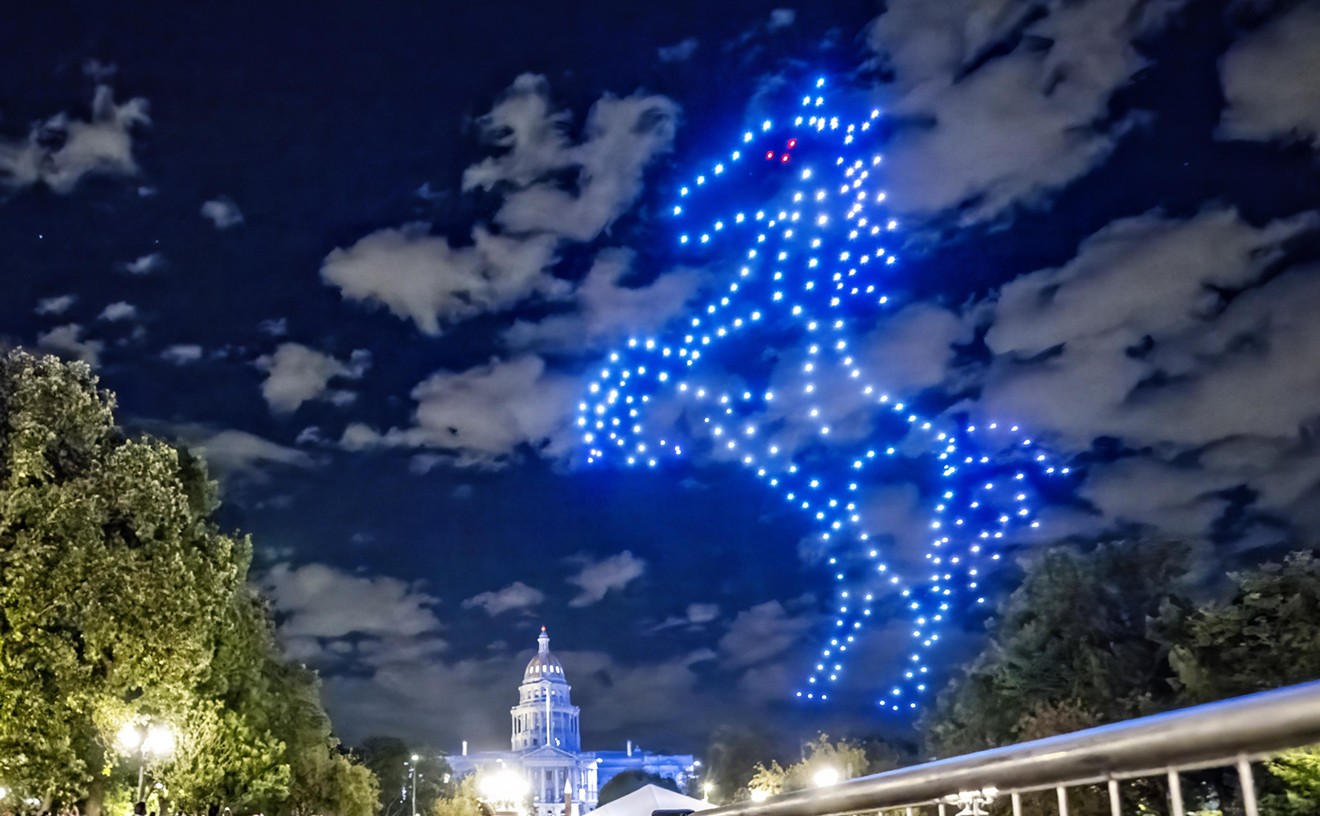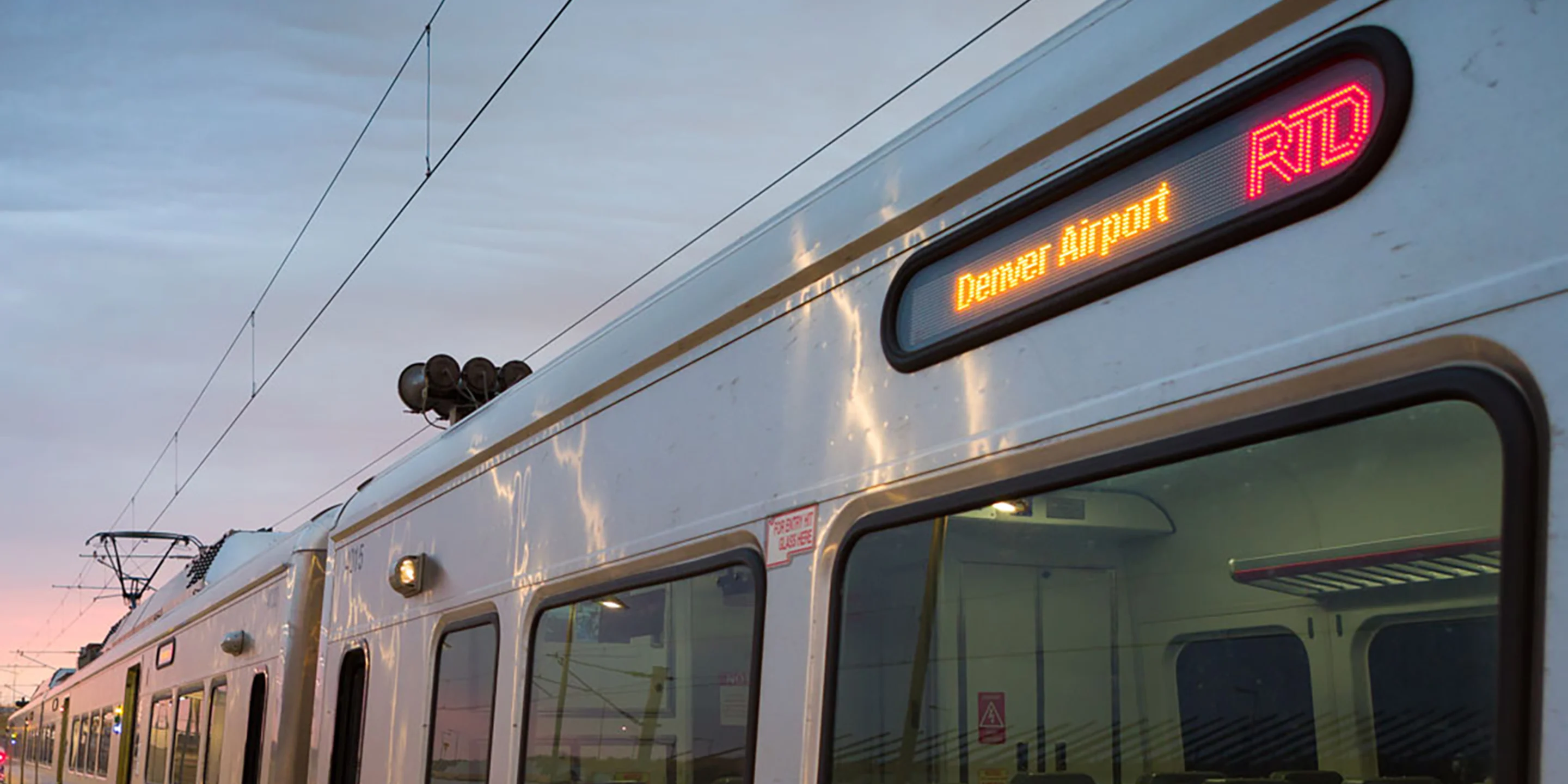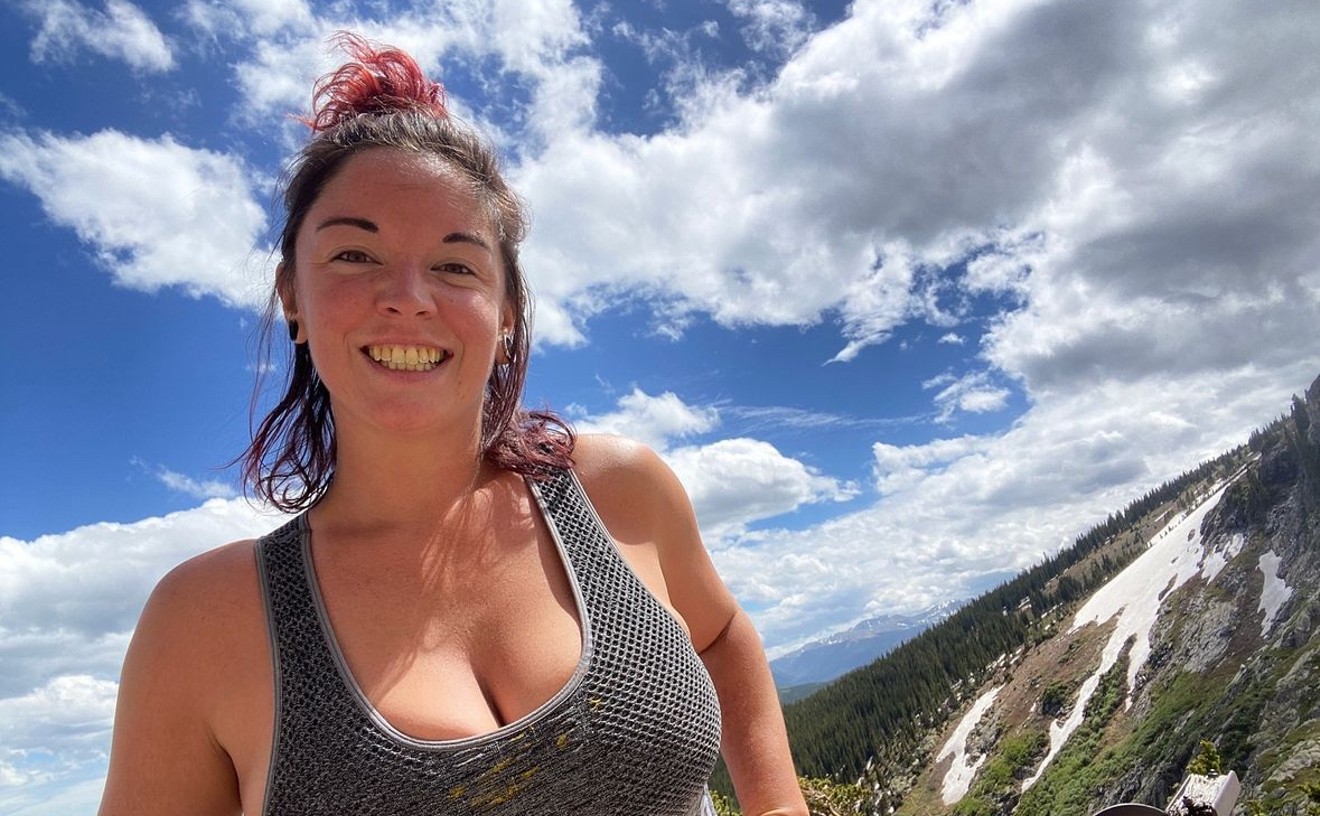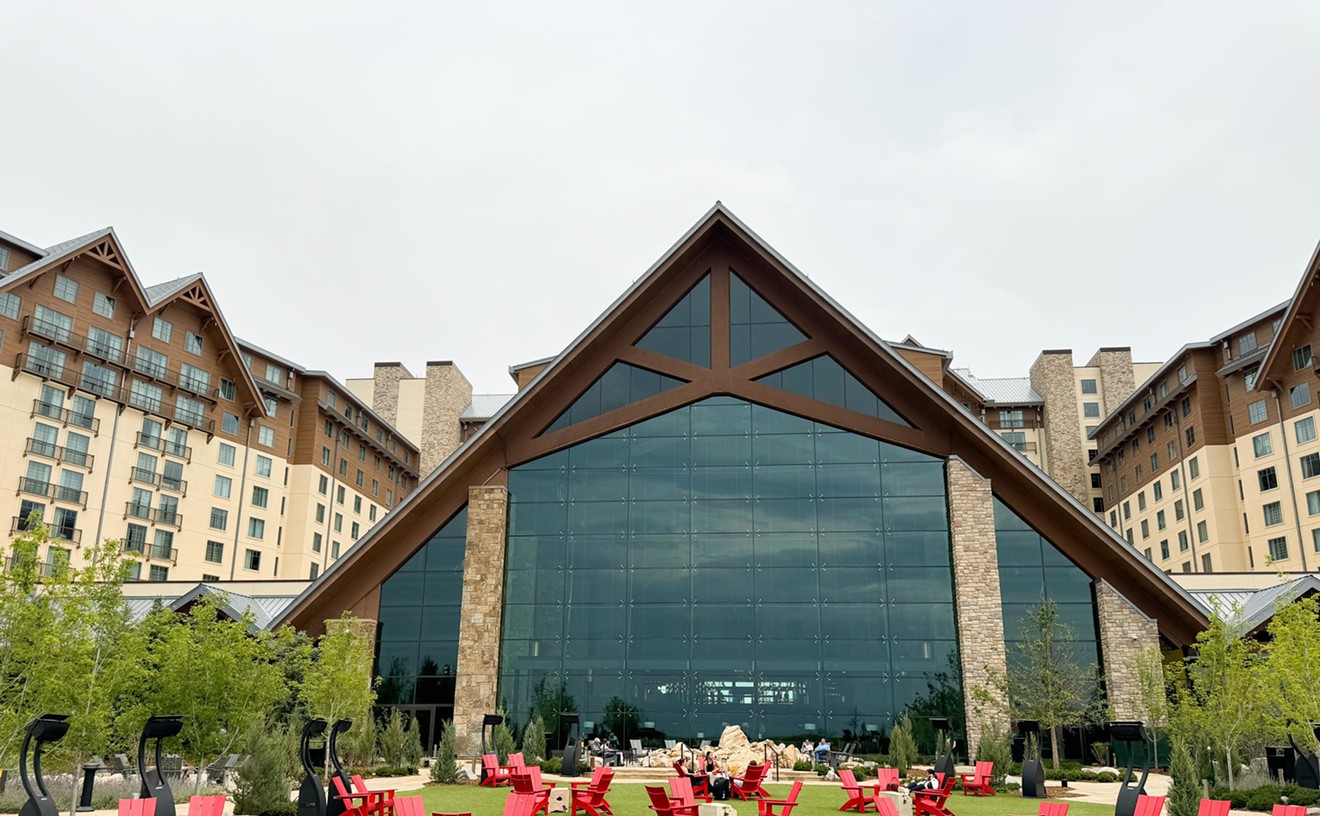Last week, Gypsy House Cafe announced that it would be closing in mid-March, after twelve years on the corner of East 13th Avenue and Marion Street in Capitol Hill. The property company had sold the building in January, barely giving Dena and Doniece Derani — the twin sisters who run Gypsy House with their mother — time to prepare for closure, let alone simultaneously celebrate the cafe's life and mourn its demise.
Gypsy House's impending extinction is so much more than a real-estate transaction; it's a loss that ripped through the many Denver circles that called the corner shop home for more than a decade. The regulars Gypsy House collected over the years were much more than customers; they were tarot readers and wanderers, poets and playwrights, misfits and overachievers, high-school kids, grandmas, witches, musicians, plant doctors, seamstresses, businessmen and babies. Every kind of person was welcome at Gypsy House, and the devoted clientele reflected that.
In a world of New Denver coffee shops sparsely decorated with Edison bulbs, cold metal stools and a menu offering simply a latte, espresso or cortado in one size, Gypsy House was the opposite. It was a playfully messy living room of a coffee shop — with an inviting atmosphere filled with house plants, prayer flags and worn-in couches — and a spot with a colorful, illustrated menu serving dozens of eats, drinks (even coffee concoctions inspired by the Zodiac) and hookah options. Gypsy House was also a healing center, a gathering place, a safe space and a home. Perhaps most important, Gypsy House was a live art venue and performance space open to all.
Last Thursday night, I wandered along East 13th Avenue as I had hundreds of times over my Denver born-and-raised lifetime, passing so many places I used to know. Before I had even reached my destination — Gypsy House was hosting its last-ever Freedom of Speech, an open mike that had been running out of its basement for the better part of seven years — I could hear the revelry. As I approached the door, people were huddled in social circles catching a breath or grabbing a smoke. As usual, the interior windows of the coffee shop were steamy and the bass emanating from the basement was warm and inviting.
I maneuvered my way around gaggles of little ones who ran around the coffee shop like their playground, toothy grins wide as they skated under the radar of overdue school-night bedtimes. I gently pushed through the crowd that spilled up the stairs, wiggling my way into the basement room where it was all happening.
The smash of sweltering bodies incited the kind of temperature rise you can see happening in real time. At the center of all the sweat was LadySpeech Sankofa: poet, activist, emcee, teacher and founder of the Freedom of Speech open mic night. If there was ever an accurate comparison of actual attendees to Facebook RSVPs for an event, this was it. Dozens of pairs of eyes stared up at Speech as people hung on her every word, as they had been for hours — and would continue to do until late into the night.
One by one, Speech invited champion poets and fledgling spoken-word stars up to her flat carpet of a stage for their turn on the mic. Her DJ and longtime friend Cecelia — the two met as teens at drop-in day shelter, The Spot — slid old-school tracks between the performers and Speech's mini-sermons, giving the evening a continuous emotional flow. And what an emotional flow it was — this space, this community, this growing gathering of friends and strangers would cry and scream and clap their hands for Gypsy House and everything it represented.
This five-dollar suggested donation Freedom of Speech show held in a basement not only attracted the listening masses, it brought out the best poets in our city. World champion slam poet, slammaster and author Suzi Q. Smith stopped by to perform her searing piece "Black Rage in Four Part Harmony." Aurora's first-ever poet laureate, Jovan Mays, took the simple stage multiple times during the show, bringing us — and himself — to tears. National poetry slam winner, teacher and performer Theo Wilson AKA Lucifury performed, too, along with Piper Mullins, James Scott, Ralph Lazo and many, many more. It was a variety of voices, perspectives and experiences that often circled back to the same topic: Gypsy House was a home and a safe place in a city that it could no longer afford.
As I sat under the dim light on the floor, listening to each poet, I thought about a very different experience I'd had at another gathering earlier in the week. This particular event was much stiffer — lots of suits and local music-industry types making small talk about big things in a jazz lounge. We'd stood with stubby cocktail glasses in hand and listened as Mayor Michael Hancock regaled us with his vague vision of supporting this city's "vibrant music community."
I couldn't help but think about the juxtaposition of these two scenes happening in the same Denver — one pretending and the other being. How could our mayor stand there and say he wanted to support a vibrant artist community, a community that is currently — and very visibly — losing crucial spaces like Gypsy House to the game of real estate? A thick swath of that "vibrant artist community" was alive and well in the basement of a coffee shop that had just been sold. But the story of Gypsy House and its inability to play the rich man's game of Denver real estate isn't unique — it's the not-so-hidden narrative of Denver being smothered by the cardboard cut-out of an Emerald City, a facade that is currently working to make the once-affordable version disappear.
The thing is, there is no "vibrant arts community" without places like Gypsy House. Venues housed in the basement of a coffee shop are where artists get their start. They are where poets find their footing and bands jam to an audience of three people. Venues like this dank basement don't require artists to sell tickets or "fill a room"; they don't have backstages, sound boards or someone to collect the money. There are no guest lists or age restrictions. Everyone is welcome at a place like Gypsy House; starter venues like this give birth to great artistry. You can't be great at performing until you've been allowed to mess up a lot. Without local businesses like Gypsy House that invest in the creative community, there is no creative community.
In the basement of Gypsy House, I wondered — as I had so many times before — why there is such a disconnect between what Denver needs and what is actually being done to help? That night, poets and the people listening pondered this. Bobby Lefebre, decorated slam poet and founder of the We Are North Denver project, shared "Denver, Where Have you Gone?," a freshly written piece addressing this. Here's an excerpt, plus a full video of his performance that night:
Denver, where have you gone?
Last night I walked your streets in search of you, bounced around like a schizophrenic firecracker handing out missing person flyers that bore your image.
I used an old photo; one before the facelift. One that showed you smiling despite your chipped teeth.
The crowd that had stood on its toes to get a glimpse of these poets or sat cross-legged close to listen for hours in the sweaty and emotionally warm basement of Gypsy House began to thin out as the weeknight inched closer to midnight. There were still a handful of us left, hanging around and chatting as LadySpeech sat in a dark corner next to a small altar with a few candles burning. I knelt at the foot of her makeshift throne, recorder on, ready to ask Speech a few last questions about the history of her open mic for this story.
Instead, we hugged for a long time. Then I sat back down on the floor and she started to cry. A big cry. The kind of inconsolable cry that rings out when someone finally breaks the silence at a funeral. Those of us who were left in the room started crying, too. Friends close and new rested outstretched hands on Speech as she wailed. I just sat at her feet and listened.
Speech had been speaking all night — putting on a brave face and an even braver voice. She uplifted everyone in the room with her words of strength and power, engaging us and reminding us that it is better to act than sit idle in a city that is changing so fast. But now, her guard was down. She bawled and hollered and screamed her grief. I realized later that I had recorded the whole thing.
"I had no family. I had nothing but myself. I walked into [Gypsy House] and found a family — and then I made a family. I am nothing without this foundation," she said through her tears. "Change is okay, but gentrification is not. Progress is okay, but gentrification is not. Forward movement is okay, but gentrification is not.
"I saw babies get born here. I healed my mental health here. I healed with other people here.
"Losing this space hurts," she continued. "It hurts me as a person of color because I'm not safe anywhere. I'm going to try hard to make sure that we're safe. But this is what gentrification does to us. New people get good housing. New people get good services. But what about my granddad? It's not okay. We have to start fighting — not from a capitalistic perspective but from a human perspective."
Trying to explain the "energy" of a room feels so played — the notion of "vibes" has been overused to the point that it almost means nothing. But the energetic vibration inside this dank room with low ceilings and one floor lamp's light was so heavy I don't think any of us left Gypsy House as solid and whole as we when we entered. Transcribing LadySpeech's last words from that last ever Freedom of Speech at Gypsy House felt like listening to her read last rites for Old Denver. Through the recording, I relived sitting with Speech as she convulsed emotionally, overflowing with tears that rattled every last one of us in that basement. I've taken up so much space on the Internet trying to articulate how much losing Old Denver to New Denver has hurt — but I've never been able to really capture what came through in those moments of Speech's public sorrow.
Sometimes I walk around Denver with a lump of sadness in the back of my throat the size of a fist. I walk down the streets where my friends used to live and try not to cry, knowing that someone who might look like my friends but has a lot more money lives there now. As I look at the city, I try my best to take that sadness and fear and concern and turn it into happiness and hope. We're supposed to spin our grief and this new, overwhelming transience into "something positive," since so many of us who have been in Denver for a long time are clearly too vocal about the changes. But LadySpeech's words made me not want to even try to put on a mask of faux-optimism and courage anymore. Losing Denver hurts.
Denver, where have you gone?
Be my voyeur (or better yet, let me stalk you) on Twitter: @cocodavies











